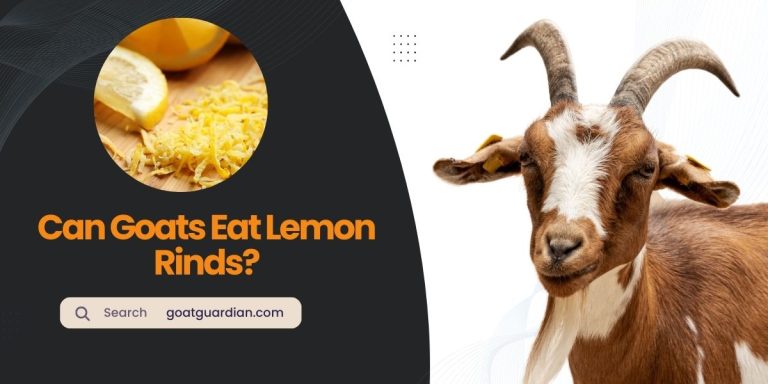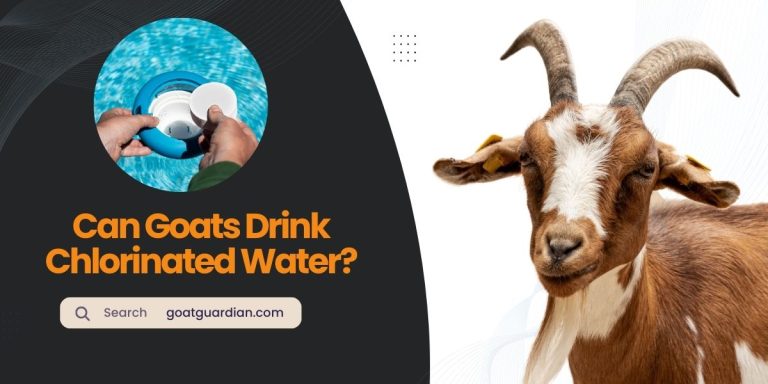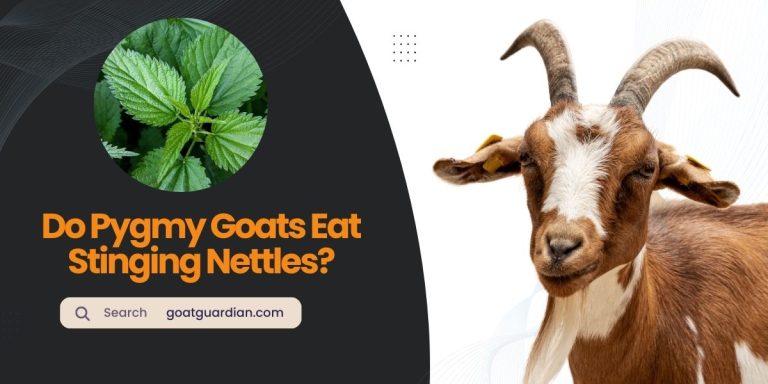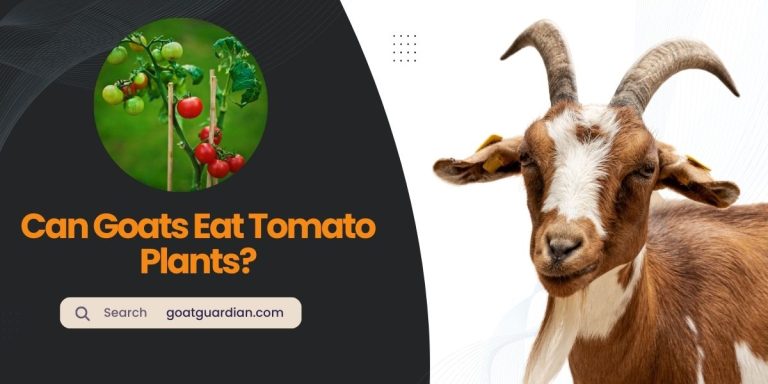Can Goats Eat Lemon Grass? (with Alternatives)
Yes, goats can eat lemon grass. Lemongrass is a safe and nutritious food for goats, and it can even have positive effects on their digestion and milk production.
It is recommended to include lemongrass in a goat’s diet to enhance their performance. However, it’s important to note that not all plants are safe for goats to eat, and it’s crucial to ensure they have a balanced diet and avoid toxic plants.
Overview Of Goats’ Dietary Needs
Goats are herbivores and have specific dietary needs to maintain their health and well-being. While goats can eat a variety of plants, it is important to ensure they have a balanced diet to meet their nutritional requirements.
A typical diet for goats includes a combination of roughage and concentrates such as hay, grass, grains, and minerals. The roughage provides fiber and helps with digestion, while concentrates provide essential vitamins and minerals.
It is crucial to provide a balanced diet for goats to prevent nutrient deficiencies or imbalances. This includes a proper ratio of carbohydrates, protein, fat, vitamins, and minerals.
While lemon grass is not toxic to goats, it should be fed in moderation. Some goats may enjoy eating lemon grass, but it should not be the main component of their diet. Feeding excessive amounts of lemon grass can lead to digestive issues or nutrient imbalances.
In conclusion, goats can eat lemon grass, but it should be part of a varied diet that includes other essential feed sources. Providing a balanced diet is crucial for maintaining the health and well-being of goats.
Benefits Of Lemongrass For Goats
| Lemongrass is a nutritious feed option for goats, providing various health benefits. It is rich in essential nutrients such as vitamin A, vitamin C, and potassium, which help support the goats’ overall well-being. Additionally, lemongrass aids in digestion and rumen fermentation, promoting healthy gut function in goats. These benefits contribute to improved nutrient digestibility and milk production in dairy goats. Studies have shown that supplementation of lemongrass in the diet of lactating Damascus goats leads to enhanced feed utilization, manipulated rumen fermentation, and increased milk production. Therefore, incorporating lemongrass into goats’ diet can be an effective way to enhance their health and productivity. However, it is essential to ensure a balanced diet and consult with a veterinarian for specific feeding recommendations for goats. |
Incorporating Lemongrass Into Goats’ Diet
Lemongrass can be incorporated into a goat’s diet in various ways. It is important to consider the dosage and frequency when feeding lemongrass to goats.
Research suggests that supplementation of lemongrass and rosemary in the diet of lactating goats has a positive effect on nutrient digestibility and milk production. Combining lemongrass with other plants and herbs in the goat’s diet can also be beneficial.
However, it is essential to be cautious and avoid feeding goats plants that are poisonous to them. Additionally, goats should not consume too much grass at once as it can overwhelm their rumen’s bacteria.
Instead, it is recommended to provide a balanced diet that includes a variety of feed options. Goats can also eat table scraps from the garden and kitchen, such as banana peels, orange peels, tomato, garlic skins, and other vegetables and fruit cuttings.
Other Herbs Safe For Goats’ Consumption
| Rosemary as an alternative herb for goats |
| Rosemary is a safe and beneficial herb for goats to consume. It offers various health benefits and can be used as an alternative to lemongrass in their diet. Rosemary contains essential oils that have antimicrobial and antioxidant properties, promoting overall well-being and helping to prevent diseases. |
| Benefits and uses of rosemary for goats |
| Rosemary is rich in nutrients and vitamins, including vitamin A, vitamin C, and calcium, making it a nutritious addition to goats’ diet. It supports healthy digestion, boosts the immune system, and aids in respiratory health. Additionally, rosemary can act as a natural dewormer for goats, helping to control internal parasites. |
| Compatibility with lemongrass in goats’ diet |
| Rosemary and lemongrass can be used together in goats’ diet, providing a variety of flavors and health benefits. Both herbs have similar properties and can help improve feed utilization, digestion, and milk production in goats. However, it is important to introduce new herbs gradually and monitor goats’ response to ensure compatibility and avoid any potential digestive issues. |
Plants And Foods To Avoid For Goats
Dangerous and toxic plants for goats
|
Harmful effects of certain foods on goats’ healthGoats should avoid consuming foods like garlic, onion, chocolate, and caffeine as they can be harmful to their health. |
Establishing a safe and healthy feeding plan for goats
|
Managing Goats’ Diet And Grass Intake
- Controlling goats’ access to grass and pasture
- Monitoring grass consumption for optimal health
- Addressing overeating and bloat concerns in goats
When it comes to managing goats’ diet and grass intake, it is important to control their access to grass and pasture. Goats should not be allowed to graze freely without any supervision, as this can lead to overeating and potential health issues.
It is crucial to monitor their grass consumption to ensure they are eating a balanced diet and getting the necessary nutrients for optimal health. Additionally, it is important to address concerns such as overeating and bloat in goats.
Overeating can lead to fermentation gases building up in the rumen, causing bloat. To prevent this, it is essential to provide them with a controlled diet and avoid overfeeding.
By carefully managing their access to grass and monitoring their consumption, goats can maintain their health and well-being.
Frequently Asked Questions For Can Goats Eat Lemon Grass
Can Goats Eat Too Much Grass?
While goats can eat grass, they should not eat too much at once as it can overwhelm their rumen bacteria. Feeding rich foods like grain or alfalfa can also cause bloat. Goats should not consume garlic, onion, chocolate, caffeine, or toxic plants.
They can, however, eat lemon balm and lemongrass.
What Can Goats Eat And Not Eat?
Goats can eat lemon balm, lemongrass, and rosemary, which are safe and beneficial for them. However, goats should not eat geraniums, as they are poisonous. It is important to avoid feeding goats garlic, onion, chocolate, or any source of caffeine.
Goats can also consume grass, vegetables, fruits, and certain kitchen scraps, but there are some trees and plants that are toxic and should be avoided.
How Much Grass Does A Goat Eat Per Day?
On average, a goat can eat about 4 pounds of grass per day.
Can Goats Eat Table Scraps?
Yes, goats can eat table scraps including vegetable and fruit peels, garlic skins, and other kitchen scraps. They can also consume general garden waste like tomato plants and fruit cuttings. However, it is important to avoid feeding them toxic plants such as peonies, camellias, asters, and moss.
Conclusion
To conclude, goats can safely consume lemon grass. In fact, adding lemongrass or other herbs like rosemary to their diet can have positive effects on their nutrient digestibility, performance, and milk production. However, it’s important to note that goats should not eat geraniums or other toxic plants.
Overall, incorporating lemon grass into the diet of goats can be a beneficial and healthy choice.






